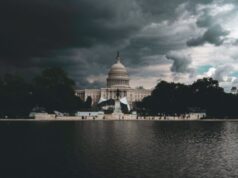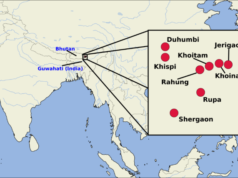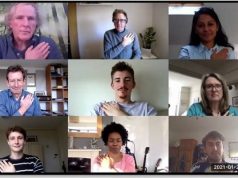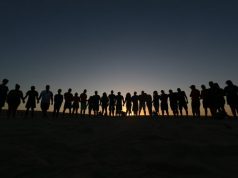If you’re reluctant to identify as a Democrat or Republican even though you are staunchly liberal or conservative, you’re probably also less prone to bias in other ways.
In a time where political affiliations can feel like they’re leading to tribal warfare, a research team from Duke University’s Trinity College of Arts & Sciences has found that the desire to be part of a group is what makes some of us more likely to discriminate against people outside our groups, even in non-political settings.
“It’s not the political group that matters, it’s whether an individual just generally seems to like being in a group,” said Rachel Kranton. She is an economist who conducted the research with Scott Huettel, a psychologist and neuroscientist.
“Some people are ‘groupy’ – they join a political party, for example,” Kranton said. “And if you put those people in any arbitrary setting, they’ll act in a more biased way than somebody who has the same political opinions, but doesn’t join a political party.”
The research appears this week in the Proceedings of the National Academy of Sciences. Kranton and Huettel worked with Seth Sanders, formerly of Duke and now at Cornell, and Matthew Pease, a 2010 Duke graduate now at the University of Pittsburgh Medical Center.
Find your dream job in the space industry. Check our Space Job Board »
The team tested what they call “groupiness” with 141 participants, using in-person research.
Participants were asked to allocate money to themselves and someone in their group, or to themselves and someone outside their group. They did this in different settings.
For one test, the participants were divided into groups according to their self-declared political leanings. In another setting, the groups were organized more neutrally, based on their preferences among similar poems and paintings. In a third test, the other recipients of the money were chosen at random.
The researchers expected to find the stronger people’s opinions were within their group, the more they would discriminate against people outside the group.
But that wasn’t the case.
What they found instead was that being more attached to the group itself made participants more biased against people outside their groups, regardless of the context, compared to people with similar political beliefs but who didn’t identify as Democrat or Republican.
“There is this very specific distinction between the self-declared partisans and politically similar independents,” Huettel said. “They don’t differ in their political positions, but they do behave differently toward people who are outside their groups.”
A third of the participants were not swayed at all by group membership when allocating their money. Those participants were more likely to be politically independent, the researchers found.
“People who say they’re politically independent are much less likely to show bias in a non-political setting,” Kranton said.
They also found less group-minded people made decisions faster.
“We don’t know if non-groupy people are faster generally,” Kranton said. “It could be they’re making decisions faster because they’re not paying attention to whether somebody is in their group or not each time they have to make a decision.”
What makes people groupy? The researchers don’t know, but they did rule out some possibilities. It doesn’t relate to gender or ethnicity, for example.
“There’s some feature of a person that causes them to be sensitive to these group divisions and use them in their behavior across at least two very different contexts,” Huettel said. “We didn’t test every possible way in which people differentiate themselves; we can’t show you that all group-minded identities behave this way. But this is a compelling first step.”
More information: Rachel Kranton et al. Deconstructing bias in social preferences reveals groupy and not-groupy behavior. PNAS (2020). www.pnas.org/cgi/doi/10.1073/pnas.1918952117
Image Credit: Pixabay/CC0 Public Domain











